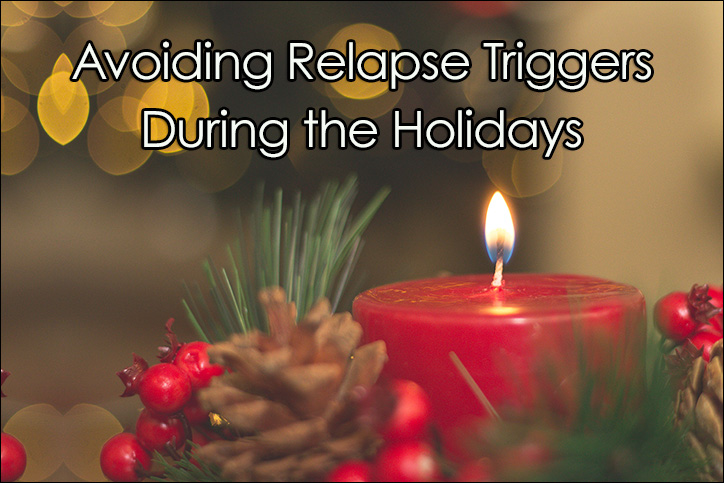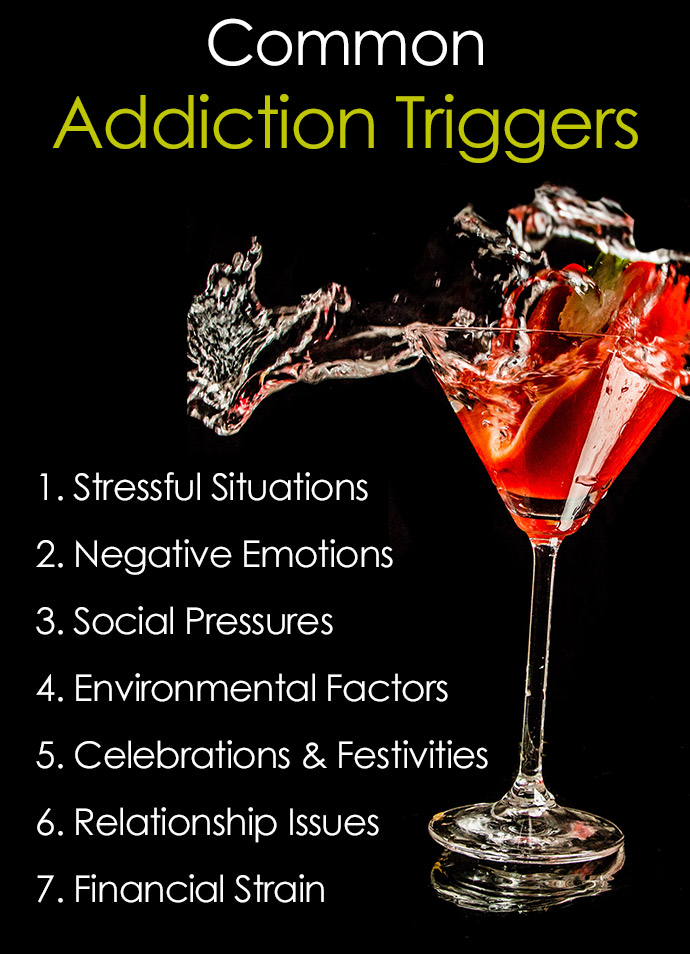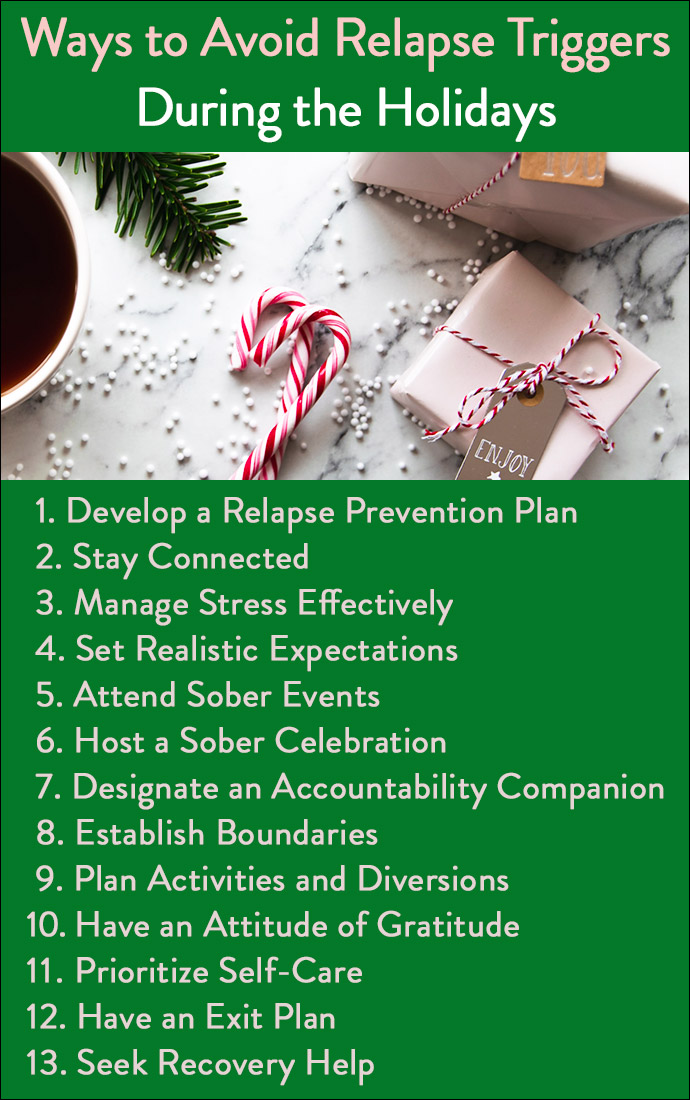Table of Contents
The end of the year should be a time of joy and celebration with family and friends. But for those in addiction recovery, one of the biggest challenges is avoiding common relapse triggers during the holidays.
Most people look forward to the holiday season as a time to have a few days off from work and celebrate with others.
High expectations can increase stress levels, though, and a party atmosphere often encourages drinking and substance use that makes it difficult for those in recovery to remain sober.
So it’s necessary to recognize common relapse triggers during the holidays and develop effective strategies to maintain sobriety.
What is Addiction Relapse?
Addiction relapse occurs when an individual in recovery from substance abuse returns to using drugs or alcohol or engages in addictive behavior.
The National Institute on Drug Abuse (NIDA) defines addiction as, “a chronic, relapsing disorder characterized by compulsive drug seeking and use despite adverse consequences.”
The term “relapse” is a central component of the definition of addiction, and it should not be viewed as a sign of failure but rather a common and difficult aspect of the recovery process.
In fact, an article published in the National Library of Medicine notes that studies have shown relapse rates can be as high as 70% in the period following treatment.
Several factors contribute to addiction relapse, and they often vary from person to person. Some common relapse triggers include stress, negative emotions, social pressure, environmental influences, and exposure to addictive substances.
Understanding and identifying addictive triggers and developing effective coping strategies are crucial for relapse prevention.
What Are Addiction Triggers?
Addiction triggers are events or situations that produce strong cravings and may lead to a relapse or return to substance use.
Relapse triggers vary for every individual and can be linked to specific memories, emotions, people, or places associated with previous substance use.
Identifying addiction triggers is an important step for developing a relapse prevention plan.
Common Relapse Triggers
1. Stressful Situations
Stressful situations can trigger the need to use drugs or alcohol to cope with feelings of stress and alleviate the symptoms.
2. Negative Emotions
Feelings of sadness, loneliness, or depression can be powerful triggers for individuals in recovery.
3. Social Pressures
Being around people who engage in drug or alcohol use or feeling pressure to participate in unhealthy social activities can be difficult.
4. Environmental Factors
Revisiting places associated with past substance use can act as a powerful trigger that may cause a relapse.
5. Celebrations and Festivities
Celebrations and festivities like the holidays are intended to be happy events but they can also be a reminder of prior substance use that is triggering for many people in recovery.
6. Relationship Issues
Failed relationships with family or friends can contribute to emotional distress.
7. Financial Strain
Money issues, debt, and financial insecurity can lead to an increase in stress and anxiety.
These are some of the most common addiction triggers and it’s important to consider how the holidays play a role in triggering a relapse.
How the Holidays Can Trigger Relapse
Despite the happy and festive nature of the holiday season, it’s crucial for those in recovery to recognize how the holidays can trigger relapse.
1. Increased Stress Levels
The holiday season is overflowing with social obligations, financial pressures, and family responsibilities that can elevate stress levels. For individuals in recovery, increased stress is an influential addiction trigger that can compel people to self-medicate with alcohol or drugs.
2. Intensified Emotions
The holidays create a mix of positive and negative emotions, from joy and excitement to sadness and nostalgia. For those in recovery, intensified emotions can amplify the risk of relapse, especially if particular emotions are associated with substance use.
3. Social Expectations
During the holidays, expectations run high and everyone is encouraged to engage in social activities and celebrations whether they want to or not. This may expose individuals to environments where substance use is prevalent, or to be around people that remind them of their time before they became sober.
4. Isolation and Loneliness
While the holidays are a time for connecting with family and friends, some individuals may experience feelings of isolation or loneliness, which can be a powerful relapse trigger. This is especially troubling for those who have a strained family relationship or live far from loved ones.
5. Erratic Schedule
For people in recovery or those with mental health issues, sticking to a regular schedule creates a sense of calm and consistency that makes life easier to stay on track. Trying to meet the obligations of a busy holiday schedule can cause mental instability and heighten the need to use substances as a coping mechanism.
6. Weather and Time of Year
The end of year holidays can be cold and have fewer daylight hours, so people spend more time inside and get less exercise and exposure to sunlight. This can have a negative impact on energy, mood, and the way we feel.
After identifying the reasons behind common relapse triggers during the holidays, it is beneficial to explore successful strategies for avoiding them and to stay on track during recovery.
Ways to Avoid Common Relapse Triggers During the Holidays
1. Develop a Relapse Prevention Plan
Work with a therapist or support group to create a personalized relapse prevention plan to make it through the holidays.
Identify specific triggers and coping strategies that are specially tailored to your individual needs.
2. Stay Connected
Build a strong support network and communicate openly with family, friends, or a sponsor and let them know as soon as you feel overwhelmed by holiday stress.
Attend therapy or support group meetings regularly, even during the holidays.
3. Manage Stress Effectively
Practice daily stress-reducing activities that work best for you. Good strategies include exercise, meditation, deep breathing exercises, and yoga.
Plan ahead and set aside time for gift shopping or event preparations to avoid last-minute holiday stress.
Here are some additional tips for managing mental health during the holidays to decrease stress.
4. Set Realistic Expectations
Be realistic with your expectations during the holiday season and don’t feel compelled to attend every event you’re invited to. Focus on the quality rather than the quantity of activities.
5. Attend Sober Events
Attend sober events or activities in your community during the holidays. Many organizations and support groups organize alcohol-free gatherings that provide a safe and supportive environment for those in recovery.
6. Host a Sober Celebration
Host a sober celebration yourself and invite friends in recovery as well as others who are looking for a break from alcohol-related parties. Have a mocktail recipe contest to see who has the best non-alcoholic drink concoctions.
7. Designate an Accountability Companion
Designate a friend, family member, or sponsor who will serve as an accountability companion throughout the holidays. Having a trustworthy person to check in with regularly or attend events with will provide support during challenging times.
8. Establish Boundaries
Talk openly about sobriety with friends and family and set clear boundaries regarding drugs or alcohol before attending events. Politely decline invitations to activities that may jeopardize your sobriety.
9. Plan Activities and Diversions
Plan sober activities with people you care about, such as game nights, movie marathons, or outdoor adventures. It’s entirely possible to participate in enjoyable activities that do not involve alcohol or other substances.
10. Have an Attitude of Gratitude
Having an attitude of gratitude and focusing on the positive aspects of your recovery will make it easier to avoid common relapse triggers during the holidays. A gratitude jar or journal is a helpful way to document your progress and remind you of all the good in your life.
11. Prioritize Self-Care
Explore different self care ideas and make it a priority during the holidays. Ensure you get proper sleep, exercise regularly, and eat healthy foods in between the festivities. It’s okay to enjoy holiday meals and treats but keep it in moderation and only during special events. Nobody needs to binge eat through the entire month.
12. Have an Exit Plan
Prepare an exit strategy ahead of time for situations where drug or alcohol use is present. It’s easier to arrange transportation to leave events if you feel triggered or uncomfortable when you plan in advance.
13. Seek Recovery Help
If the holiday season becomes overwhelming, don’t hesitate to seek recovery help from a therapist, sponsor, or sober friend. Emergency helplines and crisis intervention services are just a phone call away.
Successfully navigating the holiday season and avoiding common relapse triggers requires awareness, planning, and a strong support system.
By understanding how to identify addiction triggers and learning successful strategies to avoid a relapse, it’s possible for anyone in recovery to fully enjoy the holiday season without compromising their sobriety.






